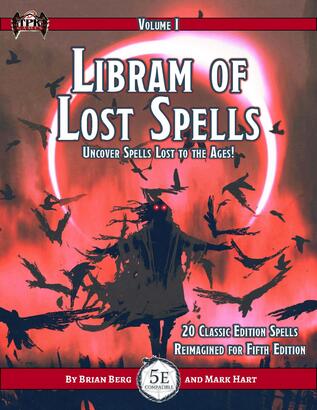 If you've ever played a wizard who through deed or just plain good luck finds a spellbook, well, life is good! It's like Christmas morning before the presents are unwrapped. Excitement just pulses through you! So you can imagine having the opportunity in real-life to play through the very same scenario - uncovering previously unknown spells. Yes please! Which is why we at Heroes B&B asked Mark Hart, a developer and one of the authors of a series of Lost Spell volumes, to join us on our Thursday night D&D chat. The volumes (pictured) provide both new spells and those brought back to life from previous editions. Each volume provides 20 new spells for us magic-addicted RPers to consume. (You can check out these volumes - all six! - at www.totalpartykill.games.) Mark, a longtime D&D player and author from Cedar Rapids, Iowa, shared some fascinating insights about his work on recovering “lost spells” during our D&D Chat, including: * Not all spells can be brought back to life due to the differences between editions. Mark sees the current 5th Edition as more specific at times for players and less arbritrary for the DM, which can make bringing back spells from early editions rather tricky; * Earlier editions focused more intensely on specific magic schools, like necromancy, vs. the current 5th Edition. (So you magic-users fond of the undead should love these “new” lost spells!); * The “why” behind this project. In other words, why, as a player or DM, should you even consider using “lost spells” vs. only those found in the official player’s handbook? The answer from Mark’s perspective – and we couldn’t agree more! – is intrigue! Consider from a player’s perspective that moment when you fail a save and thus start to feel the effects of that evil wizard’s spell. How much more compelling (actually frightening!) is it when you don’t know the spell and thus don’t know what’s it about to do to you? Talk about a knuckle-cracking moment! Finally, during our D&D Chat, Mark also provided us a look at some of the specific “lost spells” in the series, including Repeat Strike – how crazy would it be to duplicate that very recent critical hit through the use of magic!? – and Stolen Breath, a Warlock spell that can lead to a drowning-like situation and makes Concentration spells incredibly dicey for magic users. SPECIAL NOTE TO HEROES B&B FOLLOWERS: The publisher of the Lost Spells volumes, Total Party Kill Games, has provided Heroes B&B followers a special gift. You can get a free copy of “The Libram of Lost Spells, Volume 1” by going here: http://www.totalpartykill.games/shop-1. You’ll be able to find the volume in the D&D 5e section and after you add it to your cart, just use the “HeroesBB” code to get this volume for free. Special thanks to Total Party Kill Games for this boon!
1 Comment
Heroes B&B's free weekly online discussion "D&D Chat" featured special guest Ben McFarland, a fantasy writer and world-builder. Ben discussed his work on Kobold Press' Southlands campaign setting as well as tips on researching how to build your own D&D world. Fantasy fans can find out more info on Southlands - recommended by those of us at Heroes B&B - at Kobold Press' site, https://koboldpress.com/.
Heroes B&B's free weekly online discussion "D&D Chat" continued with special guest Ted Fauster, an expert fantasy map cartographer. Fauster gave both content and art tips on creating old-school dungeons. Fantasy fans can get more teachings from Fauster here: https://skl.sh/34UWjSK
Heroes B&B started its D&D Chat with Twin Cities art Danny Williams of Miniatures Mutated. Danny provides tips for beginner painters as well as shows off some of his current (incredible!) mini projects. You can contact Danny through the Miniatures Mutated Facebook page at https://www.facebook.com/miniatures.mutated/
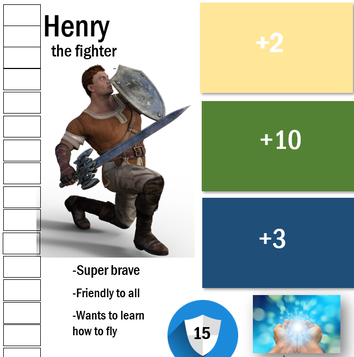 At its heart, the essence of the world’s most popular role-playing adventure game, Dungeons & Dragons, is pretty basic. Get a quest, overcome obstacles in a fantasy setting and ultimately, strive to achieve that quest. Simple, right? Where it gets a little confusing is in the rules and the plethora of dice that are involved. Most people who have not played Dungeons & Dragons will look at you strangely after you ask them to “roll a ‘d20’ to attack a creature and then their damage dice if they hit.” Say what, they’ll inquire sheepishly? Exactly! Which is why when a friend of Heroes B&B asked us to put together an adaptive version of the D&D game, we said, “Absolutely. But we need to make it make it less confusing for these new players!” What we’ve come up with relies heavily on storytelling – a Heroes B&B staple – as well as reduces the number of dice in the game. What our simplified D&D system doesn’t do is change the essence of the game, which is relying on the luck of a rolled dice to partially indicate the success a player has in overcoming the obstacles present in this fantasy setting. Here’s a short outline of our simplified system, something we believe would work well with a variety of players new to the game: * Each player character will be given a character sheet, as shown above. Each player also will receive three dice: one yellow, one green and one blue. The dice will correspond with the same-colored box on the character sheet. So if a player rolls a yellow dice, they (or a volunteer) should look at the rolled number and then add a plus-2 to the total. For example, a player rolls a 10 on the dice. They would add plus-2 to that total and the character’s roll would be communicated as a “12.” (NOTE: You can click on the character sheets on this page and download them at no cost. We suggest you laminate them so you can use them repeatedly.) * The Game Master, or GM, will tell the player which dice to roll according to the situation. For example, when a player wants to look around a new location - a "Perception" roll - they’ll roll a yellow dice. When they want to attack an evil-doing troll, they’ll roll a green dice. * The player character sheet has boxes on the left side of it. These boxes indicate the player’s current health. When a player suffers “damage”, they’ll simply mark off the boxes. For example, if a player takes 3 damage, they’ll mark off 3 boxes. The player character sheets will be laminated so such marks can be erased at a later time with ease. * The player character sheet also has a name, race, picture and information about each character. Players can always change their name if they so choose. * The player character sheet also has two other items of note: 1) a picture of two hands. This is a once-a-day healing ability that players can opt to use on their turn. Once this ability is used, it can simply be crossed off; 2) a picture of a shield and a number in the shield. The latter is the player’s “Armor Class,” a number the Game Master must equal or surpass on a roll in order to successfully target or “hit” a player. We hope this adaptive version of D&D will allow less experienced players to enjoy the far-flung fantasy settings and memorable quests involved in this creative and entertaining game. If you have questions on this adaptive D&D system, would like one of our player character sheets at no cost, or if you have ideas on how to improve it, reach out to me at [email protected].  A Dungeons and Dragons adventure complete with unicorns and heroes? A perfect recipe for a story for new players. A Dungeons and Dragons adventure complete with unicorns and heroes? A perfect recipe for a story for new players. Since writing our initial blog, we’ve had a number of parents reach out to us and say, “I’m game! Show me how to do this, to start rolling dice with our kids.” Easy enough done, in terms of providing online resources. There’s a second step, however, that I do want to spend some time on. But first, let’s ensure you have what you’ll need to start. For an online how-to manual, check out https://dnd.wizards.com/products/tabletop/players-basic-rules. Then you’ll want to go to a local gaming store (Google “Dungeons and Dragons stores near me”) and get some dice – these are actually different than the ones you probably have around the house – and a map and some miniatures. The latter are representations of player characters and monsters that fit on the aforementioned map. In all, maybe a $20-$30 investment, or about what you’ll pay to go see a movie. On your own, read through the rules. Don’t worry about mastering them, just get a fair understanding of them. Then here’s the crucial part: Don’t bore your kids with what you just learned. Every time Heroes B&B puts on a game with players new to the D&D adventuring world we tell them the following: there are two aspects to this game. The first one allows you to interact with a fantasy world in whatever manner you wish. You simply have to tell us what you’re going to do before you do it. Second, if you encounter a threat, the game changes to a turn-based system, and we'll let you know when that happens. At that point, we set off into a fantasy world filled with wonder, magic and the occasional grumpy troll. The point is: Storytelling comes first, rules second. Show me a place where my imagination can run wild and then sprinkle in some limitations (ie, the rules) and I’ll keep coming back for more. And more, and more! AuthorNeil Pascale is a parent who lives in the Twin Cities. He is the founder of Heroes B&B, a Twin Cities-based service that provides adventure gaming to groups and families in Minnesota, Wisconsin and Iowa. He first started gaming as a middle-school student in math class. (Please don’t ask him what his grade ended up being in that class!) He can be reached at [email protected]  Believe it or not, improved reading comprehension is the result of a youth's foray into adventure gaming. Believe it or not, improved reading comprehension is the result of a youth's foray into adventure gaming. I inwardly laugh as a type this because there are so many reasons why you, as a fellow parent, will flinch at what I’m about to recommend. And that's this: Start rolling some dice with your children. Did you flinch? I mean the mere idea of rolling dice as part of an adventure game with your kids is, at its most basic, pretty absurd to consider. Adventure gaming – what many refer to as role-playing games – is played at a table. So cardio exercise and conditioning? Ahhh, no. Oh, and it’s played for hours at a time, often with loud outbursts. So peaceful? Ahhh, no. And get this, it can be pretty violent, at least in a story sense. But less violent than what we’re constantly shown on TV and online, right? Ahhh, no. So why would a parent, like myself, advise you to start adventure gaming with your kids? There are a number of reasons, and we’ll get to that. But first, let’s explain this adventure gaming concept. For many of us, we first encountered it as a table-top game called “Dungeons & Dragons.” We probably played it in high school or college and later with other adults. At its core, its essentially a quest game. Get a quest – “save the fairie from the evil, hungry giant frog!” – and hopefully save the day by using your wits and what are now fairly simple game rules. And there’s chance involved - quite a bit of it! This is where the aforementioned dice come in as the game’s outcome can be decided by a heartening or heart attack-inducing roll. Which is why adventure gaming is such a terrific activity to do with your kids. It can be, without question, a tremendously entertaining time. And get this, there are actually educational components wrapped up in this activity, including:
Neil Pascale is a parent who lives in the Twin Cities. He is the founder of Heroes B&B, a Twin Cities-based service that provides adventure gaming to groups and families in Minnesota, Wisconsin and Iowa. He first started gaming as a middle-school student in math class. (Please don’t ask him what his grade ended up being in that class!) He can be reached at [email protected] |
AuthorHeroes B&B is supported by a number of Twin Cities-based role-playing addicts, including blogger Neil Pascale. Archives
October 2023
Categories |
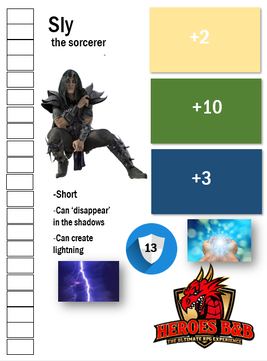
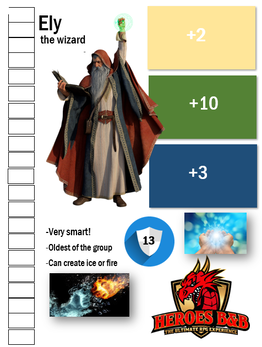
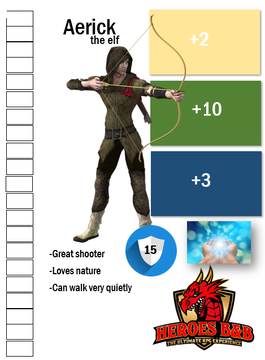
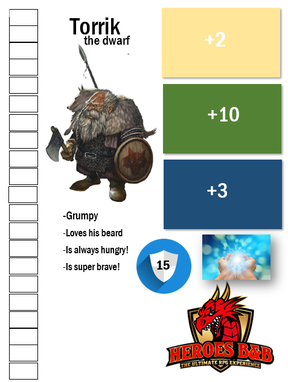
 RSS Feed
RSS Feed